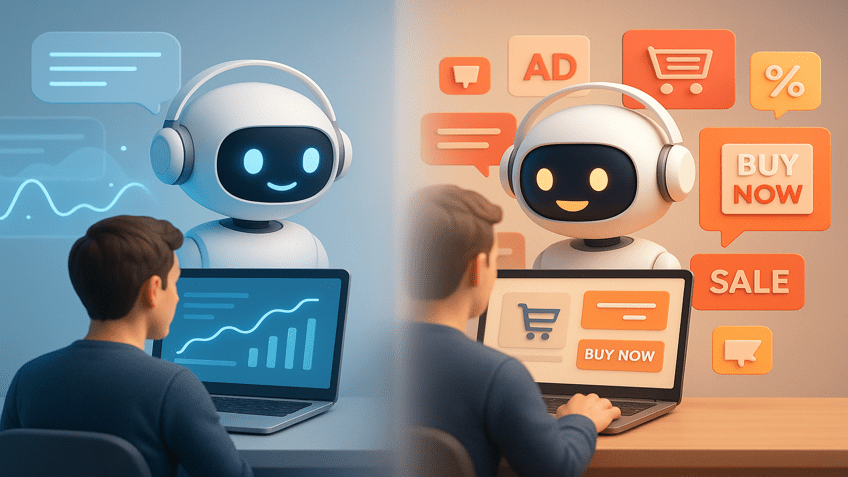Chatbots are evolving with ai automation, but not always in the right way.
Google is now exploring ways to include paid ads inside chatbot responses. This move changes how we view ai automation. What was once a trusted tool for help may slowly become a subtle space for sales. This change matters—not just for users, but also for brands who rely on trust, transparency, and clarity in their digital tools.
When Answers Start Selling Instead of Helping
Imagine asking a chatbot for advice and getting a product pitch instead. That’s what might happen as AI begins to blend with advertising. Users want answers, not ads. Once AI starts selling more than serving, its purpose changes. This shift could blur the line between helpful content and paid promotion.
Why Businesses Should Pay Attention
If you use customer service ai or rely on ai in marketing, this shift affects you too. Customers expect clear, unbiased responses. When they sense a promotional tone, trust fades. To stay credible, companies must choose AI solutions that inform—not push products. This is where choosing the right ai tools makes a big difference.
Building AI That Supports, Not Sells
AI should guide, assist, and improve experience. Once it focuses on selling, it stops being useful. Great artificial intelligence assistants solve problems first. They don’t distract users with hidden motives. Ethical ai development must focus on the user—not the conversion rate.
How Agent Bheem Keeps It Real and Reliable
At Bheemverse, Agent Bheem follows a different path. It’s not here to sell—it’s built to support. As an ai agent, it helps manage operations, automate work, and boost clarity. Whether you’re using ai intelligent agent tools or handling support with ai assistant features, Bheem puts people first. That’s what ai automation should do—work quietly, honestly, and for your team’s success.





